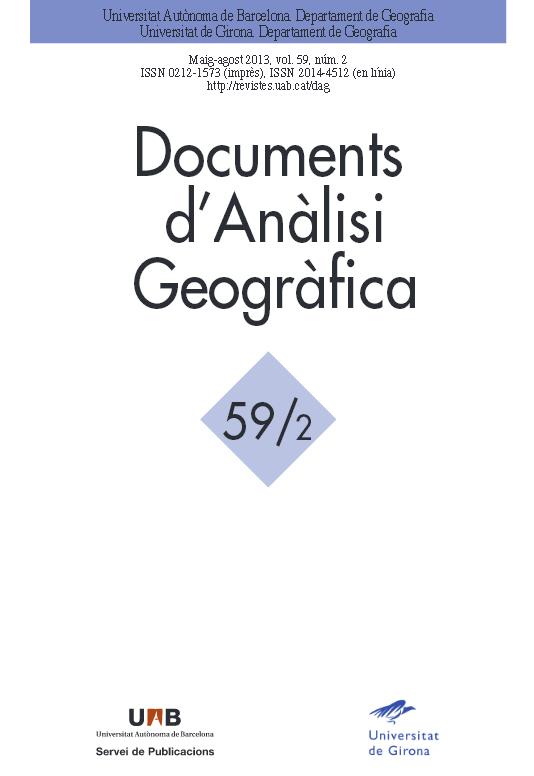A geranium humboldtii in the geographical garden: Public opinion, bourgeoisie and landscape in early modern geography
Article Sidebar

Main Article Content
Bernat Lladó Mas
Universitat Autònoma de Barcelona. Grup de Geografia i Gènere
Alexander von Humboldt (1769-1859) was a well-known figure in European society during the 18th and 19th centuries. His work concerned topics ranging from botany and political economy to geography or geology, thus reflecting the scientific and philosophical evolution of knowledge during the Enlightenment and the Romantic period. Many of his publications still generate some controversy in a way that has been interpreted as a clear example of what is sometimes called the indirect control of power by the bourgeoisie. In a historical moment in which the aristocratic-feudal power was still exerting its control over Europe, Humboldt’s work can be seen as a revolutionary attempt to awaken a new class consciousness through scientific and geographical knowledge. Following Humboldt’s steps, as well as his strategies, can help us to better understand the role science and philosophy play in forming a critical discourse.
Article Details
How to Cite
Lladó Mas, Bernat. “A geranium humboldtii in the geographical garden: Public opinion, bourgeoisie and landscape in early modern geography”. Documents d’Anàlisi Geogràfica, vol.VOL 59, no. 2, pp. 363-74, https://raco.cat/index.php/DocumentsAnalisi/article/view/291475.
Most read articles by the same author(s)
- Bernat Lladó Mas, FERNÁNDEZ CHRISTLIEB, Pablo. El espíritu de la calle : psicología política de la cultura cotidiana , Documents d'Anàlisi Geogràfica: No. 48 (2006)
- Albert Arias, Bernat Lladó Mas, Núria Matamala Fargas, Laia Oliver Frauca, Joan Santaeulàlia, Entorn del seminari "Geografies dissidents. Reflexions sobre la pràctica actual de la geografia" (Girona, 30 de novembre i 1 de desembre de 2001) , Documents d'Anàlisi Geogràfica: No. 40 (2002)
- Bernat Lladó Mas, The reverse of the cartography. Notes on Brian Harley and Franco Farinelli , Documents d'Anàlisi Geogràfica: Vol. 58 No. 1 (2012)
- Albert Arias, Xosé Constela Vega, Bernat Lladó Mas, Laia Oliver Frauca, Joan Santaeulàlia, Disidencias, disidentes (mesa redonda) , Documents d'Anàlisi Geogràfica: No. 40 (2002)
- Bernat Lladó Mas, Discurs, història i poder : lectures geogràfiques de Michel Foucault , Documents d'Anàlisi Geogràfica: No. 46 (2006)